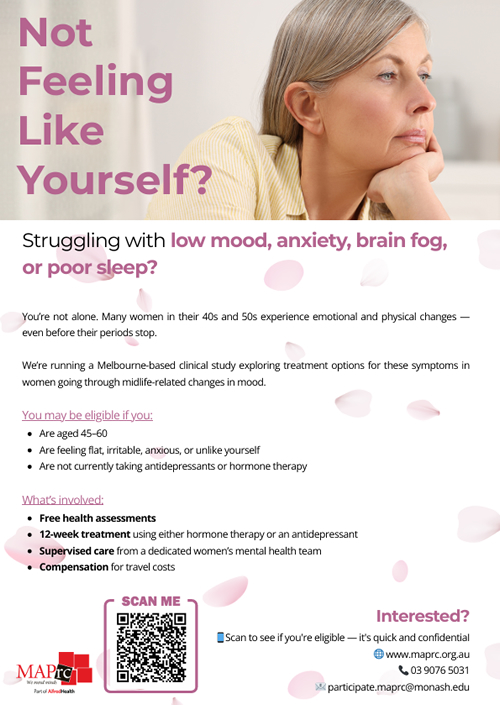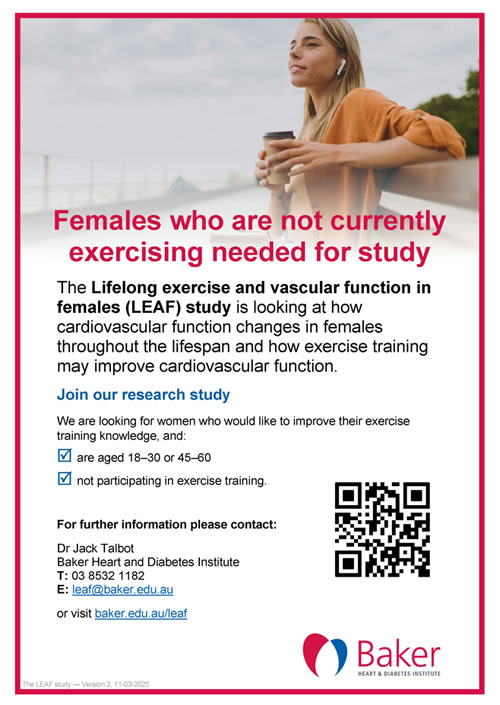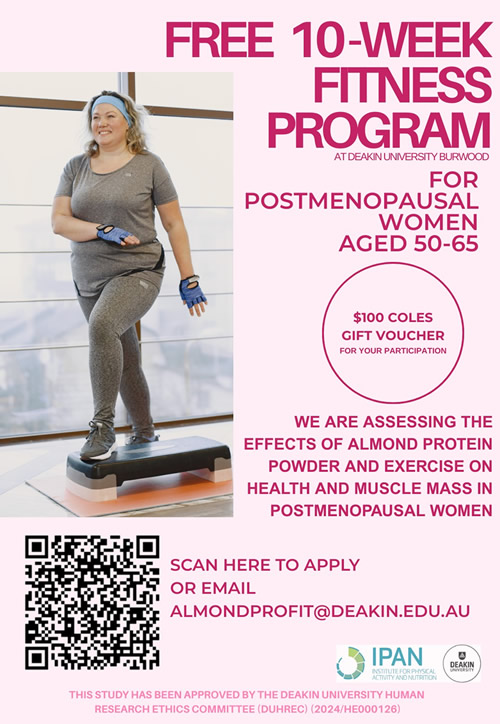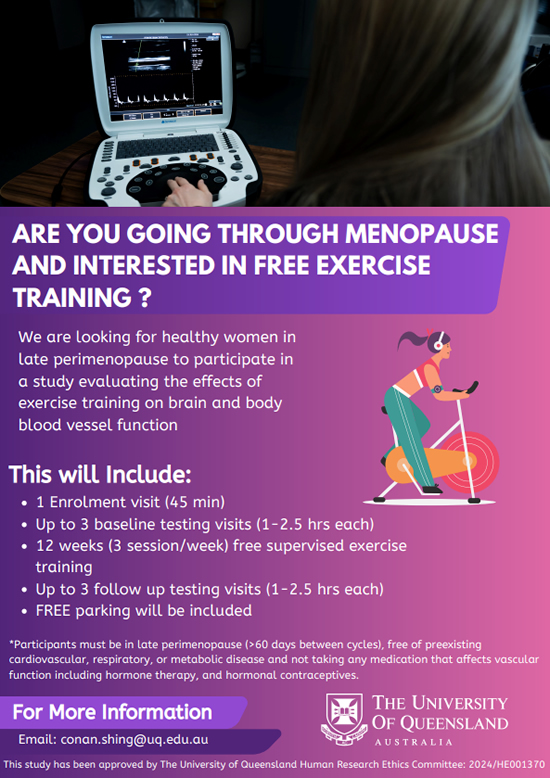Menopause Hormone Treatment vs Antidepressants
A randomised double-blinded interventional trial of Estradiol and Zoloft to treat Menopausal Depression
About the study:
The primary aim is to compare the psychological and physical outcomes for women experiencing a first-onset, relapse or persistent depressive symptoms that commenced during menopause in two groups: i) 50mcg transdermal estradiol + 100mg oral prometrium per day, and ii) women taking SSRI Zoloft 100mg per day + placebo patch.
The secondary aims are to investigate the neurobiological effects of menopause and subsequent hormone treatments, with a view to potentially identify predictive factors, and to elucidate mechanisms and issues relevant to menopausal depression with cognitive testing, sleep assessments, and weight change measurements.
Treatment duration: 12 weeks
Design: randomised, double blind investigational trial
Study population: 120 participants aged 45-60 years, with a diagnosis of depression disorder
Additional inclusion and exclusion criteria apply (such as a normal mammogram in the last 24 months, and a documented normal cervical screening in the preceding 5 years). Participants are also holistically screened for additional risk factors such as smoking, cardiac illness, active or past history of a venous thromboembolic event.
Additional details on the study protocol are available on request.
Researchers:
Prof Jayashri Kulkarni, Dr Eveline Mu, A/Prof Caroline Gurvich (Multidisciplinary Alfred Psychiatry research centre)
Ethics Approval:
Approved by The Alfred Hospital Ethics Committee on 30/07/2024 - HREC/107133/Alfred-2024 (Local Reference: Project 184/24)
Contact:
Study coordinator: Marta Malicka
Senior Clinical Trial Manager: Emmy Gavrilidis
Link to the study: https://www.maprc.org.au/research
Link for potential participants to express interest: https://redcap.link/maprceligibility
Flyer: ![]() MHT study flyer 343.57 KB
MHT study flyer 343.57 KB


 About the study
About the study
 About the study
About the study